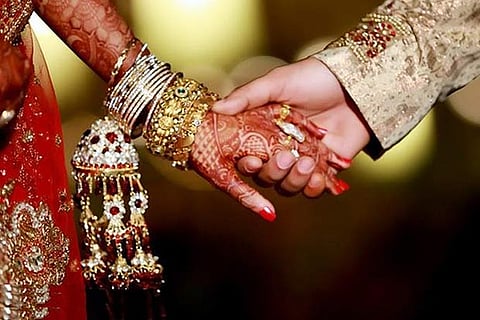

New Delhi
While hearing on a batch of petitions that sought to criminalise marital rape last Tuesday, the Delhi High Court took a progressive approach, questioning the Delhi government on the need to retain the exception to marital rape in Section 375 of the IPC.
The petitions had challenged the legal provision under the definition of consent, which exempts sexual intercourse between a man and his wife against her consent from the purview of rape. The NGOs that had filed these petitions argued that the exception to marital rape would rob a married woman of her fundamental rights such as Article 14 (right to equal treatment by law) as well as Article 21 (right to life and personal liberty).
The Delhi government’s counsel argued that the marital rape exception does not violate the fundamental rights of a married woman and that she could still file for divorce on grounds of cruelty or file a criminal case for cruelty under Section 498A of the IPC. With the Delhi High Court speaking in favour of a woman’s right to sexual autonomy, social media has been flooded with messages both in favour of knocking out the exception to marital rape in the books of law, as well as the requirement to retain it.
The problem of marital rape has not been addressed for years together. To put this problem in a global context, India is one of the 36 nations, a list which includes Pakistan, Afghanistan and Botswana, which has not yet criminalised marital rape. Several nations like the US, Canada, Israel, and New Zealand have enacted laws that penalise marital rape. Even in our neighbourhood, countries like Nepal and Malaysia have laws against it. It’s no wonder that Justice Rajiv Shekdhar of the Delhi HC pointedly asked, “Have 50 countries got it wrong?” Interestingly, as per the law of the land, marital rape is not considered a crime, unless of course the woman is under the age of 15. It might seem strange that the question of consent is raised only when the woman in question is underage, when the law should be targeting the marriage of a child in the first place.
The counter arguments against the knocking down of the exception to marital rape, as posed by many members of the legal community, involve the emasculation of menfolk as far as legal rights are concerned within the purview of marriage. Stakeholders argued how a man would be able to prove his innocence if his wife lodges a complaint against him for a retrospective crime, in which the case is built upon ‘her word against his’. In its affidavit filed in the case, the Centre had said that criminalising marital rape would only lead to the destabilising of the institution of marriage and a ready-made tool to harass husbands.
Parsing through the arguments made by both sides, it can be surmised that the question of consent is a highly nebulous one, which is all the more reason why there needs to be a concept of ground rules to start with. Consent, whether between a married or an unmarried couple, is a highly personal matter. More than a question of autonomy, it is a clear cut indicator of mutual respect for one’s partner – whether woman or man. The institution of marriage might be more at risk of crumbling from the absence of such necessary conversations involving personal space and sexual boundaries than the enactment of a legislation criminalising what is, beyond doubt, a heinous act.
Visit news.dtnext.in to explore our interactive epaper!
Download the DT Next app for more exciting features!
Click here for iOS
Click here for Android